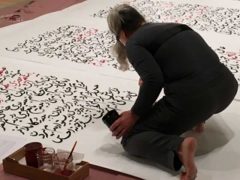Boost Your Credentials: Graduate Diplomas
Adding “something extra” to your degree program can both broaden your learning experience and give you an extra credential that can help you in building your career. Carleton University offers a number of Graduate Diploma (or “GDip”) programs that qualified students can complete during the course of their graduate degree programs.
Below you will find a list of these “Type II” Graduate Diploma programs. Standalone Graduate Diploma programs are classified as “Type III.” Some programs offer both Type II and Type III diplomas.
Architectural Conservation

What it is: four credits dealing specifically with the theory and practice of architectural conservation, giving MArch students a way to benefit from Carleton’s already-established international reputation for excellence in this field. Canada has designated close to 25,000 properties as architectural heritage sites, and there are over 200,000 sites listed on heritage inventories with an average of 2,000 properties added each year. Thus, there is a growing demand for qualified specialists to shepherd these valuable cultural resources.
Who it’s for: MArch students at Carleton wishing to augment their professional degree with a special focus on architectural conservation.
Curatorial Studies

What it is: an interdisciplinary program spanning the arts, social sciences, and sciences that provides students with curatorial skills and knowledge that are valuable in a variety of professions. Through our strong relationships with museums, galleries and festivals in the National Capital region, students also receive hands-on discipline-specific training and exposure to professional best practices.
Who it’s for: graduate students at Carleton seeking to supplement an MA or PhD at Carleton with a combination of academic training, hands-on discipline-specific training, and exposure to professional best practices.
Ethics and Public Affairs

What it is: a program that combines ethical analysis with social science and is guided by the concept of public reason, or the idea that the exercise of power must be justifiable to the people over whom it is exercised. EPAF students are taught and supervised by both philosophers and social science and public policy specialists. Practicum courses allow students to gain valuable work experience. Alumni will be prepared to compete for academic jobs, policy-related jobs in government and civil society, and careers as consultants.
Who it’s for: graduate students at Carleton who plan to pursue careers in public affairs.
European, Russian, and Eurasian Studies

What it is: a program that looks at issues related to EU enlargement in the post-communist countries of Central/Eastern Europe and Canada-EU relations. The Carleton University library is a documentation centre for the European Commission where many public documents published by the European Union are deposited. Additional materials are available in the library of the Delegation of the European Commission in downtown Ottawa.
Who it’s for: graduate students at Carleton who wish to obtain a qualification in addition to their main degree, in preparation for professional work or further study in the field.
Health: Science, Technology and Policy

What it is: a program that addresses the growing need in the public health field to for employees who can apply their knowledge of policy-related issues in the health field to the workplace. Opportunities for networking and employment in the health sector abound in Ottawa as the national capital is home to many public sector and non-government agencies, including the Canadian Institute for Health Information, the Canadian Medical Association, Health Canada and the Public Health Agency of Canada, as well as hospitals and a range of community organizations.
Who it’s for: graduate students at Carleton who wish to supplement their disciplinary expertise with a fundamental understanding of qualitative and quantitative research methods, policy, and knowledge mobilization, particularly as they apply to the health sector.
[/one_half_last]
Migration and Diaspora Studies

What it is: a program that allows students to address such interconnected issues as refugee movements, migration, mobility and diasporas that inform the modern world. It brings together a broad spectrum of academics and practitioners from the humanities, social sciences and public affairs.
Who it’s for: those wishing to take historically-informed and forward-looking approaches to the analysis of cultural and social identities, diversity and integration, exile and memory, forced migration, and refugee communities. Students who perform well in the Diploma have the option to apply to the MA Program and count their GDip credits towards the MA degree.
Infrastructure Protection and International Security

What it is: a program designed to bring together the core principles of critical infrastructure engineering and multi-hazard threat risk assessment with an awareness of the policy framework in which security practitioners operate, and the policy options available to security practitioners. It combines the unique resources of the Department of Civil and Environmental Engineering and the Norman Paterson School of International Affairs.
Who it’s for: graduate students at Carleton seeking to study critical infrastructure protection as a supplement to their other studies.
Work and Labour

What it is: a program designed to develop critical thinking skills and problem-solving strategies in the areas of work and labour. Students will gain a strong understanding of the social relations which constitute the formal and informal economy.
Who it’s for: students enrolled in the Institute of Political Economy’s collaborating graduate programs (Master’s or PhD) in FASS and FPA who wish to include a Graduate Diploma in Work and Labour along with their degree.
Linguistics

What it is: a program for those interested in the interface between linguistics and related fields who wish to incorporate the study of linguistics into their primary program. There are increasing employment opportunities in this area of study.
Who it’s for: at this time, it is primarily for students pursuing Carleton degrees in Applied Linguistics and Discourse Studies, Cognitive Science, Anthropology, French and English.